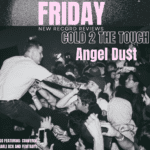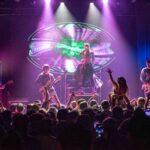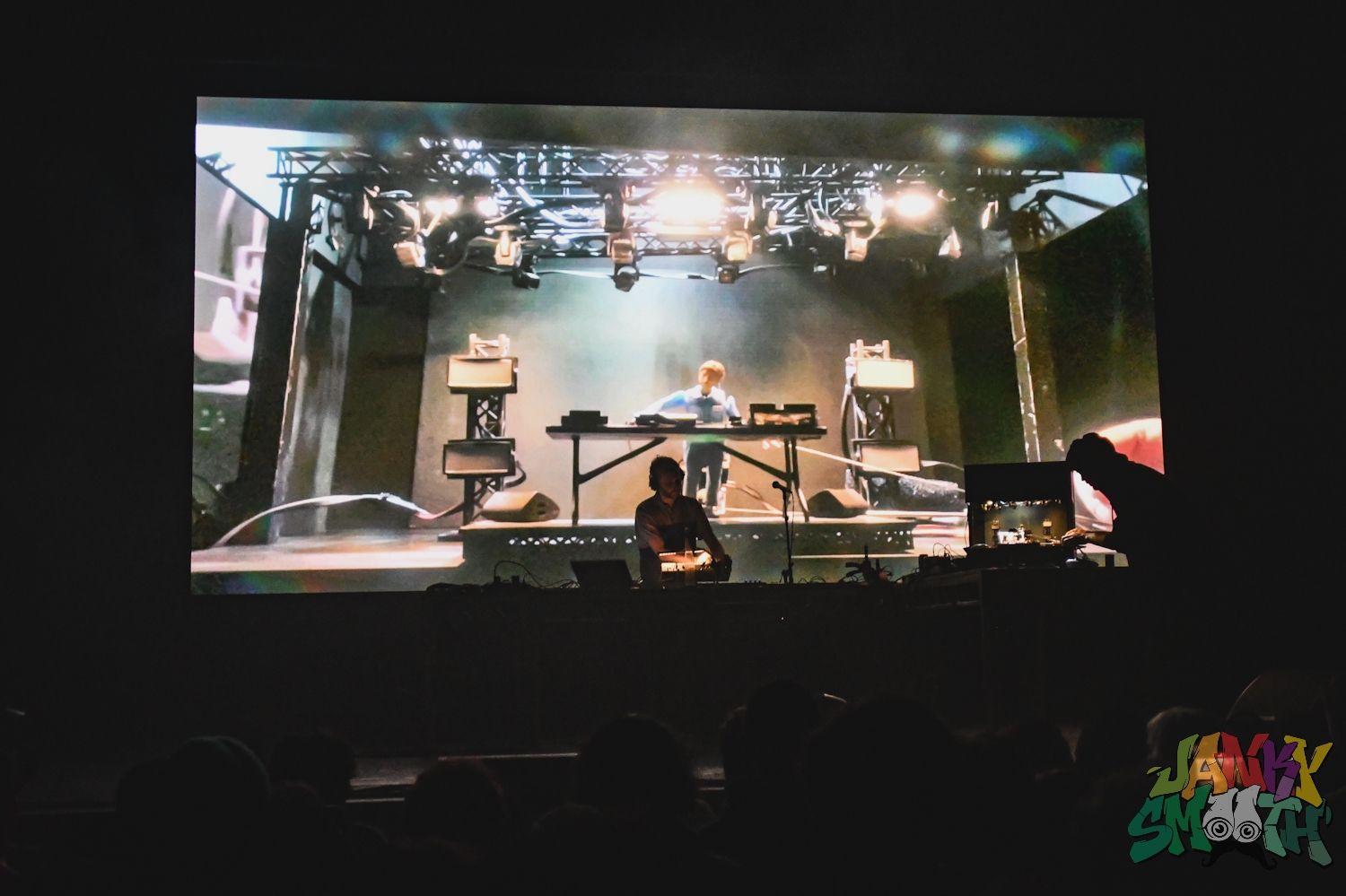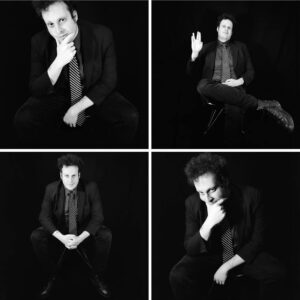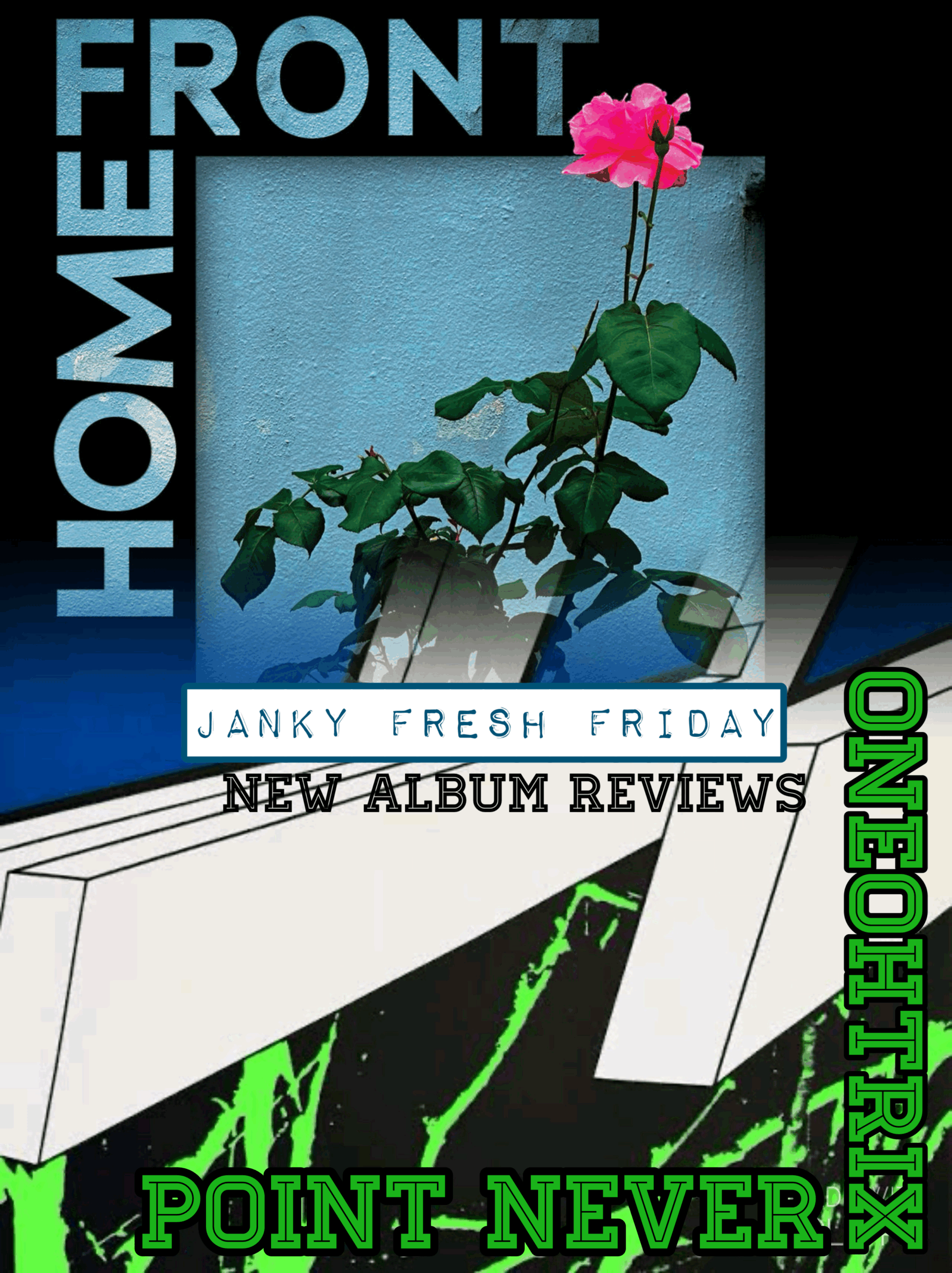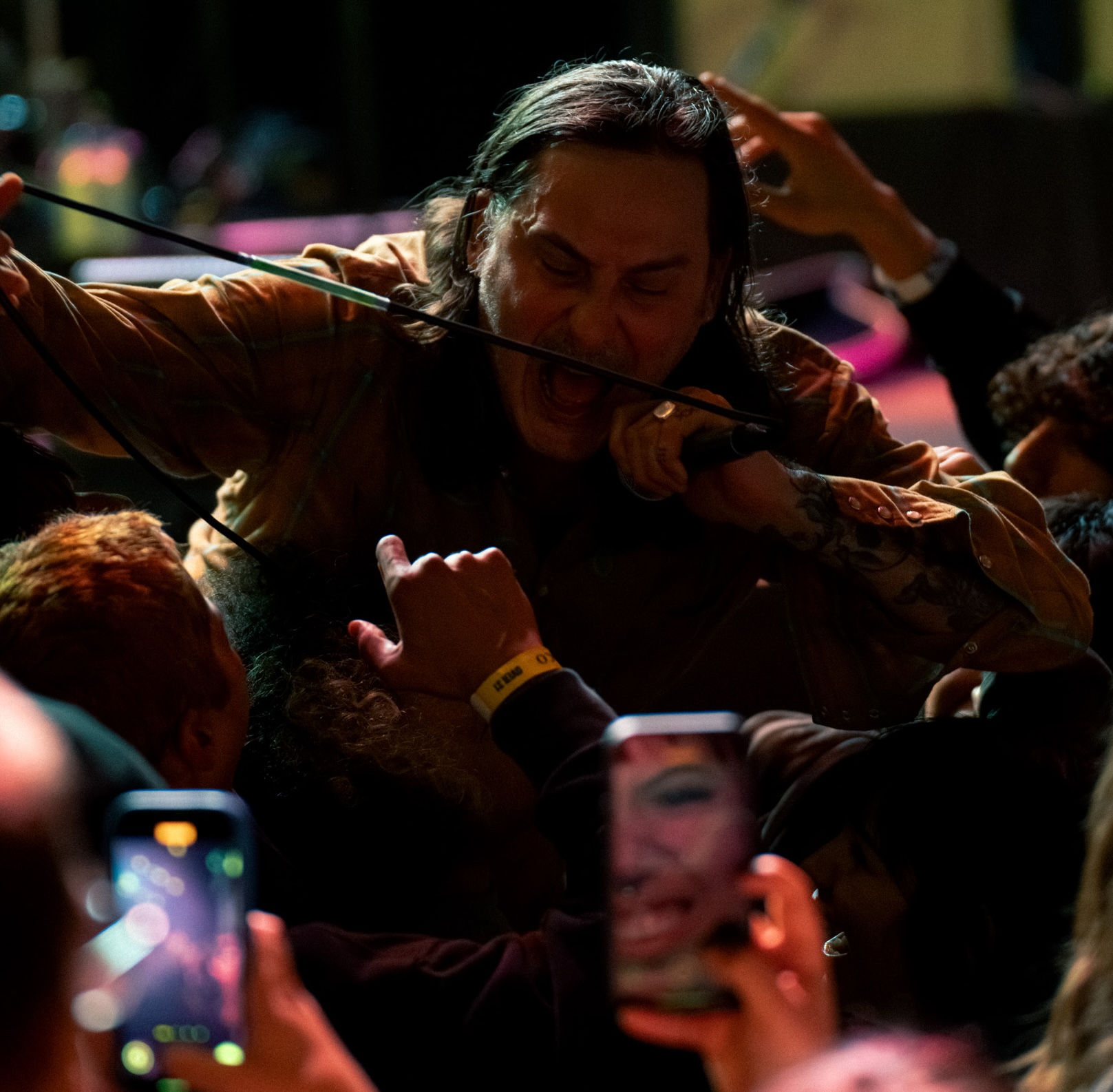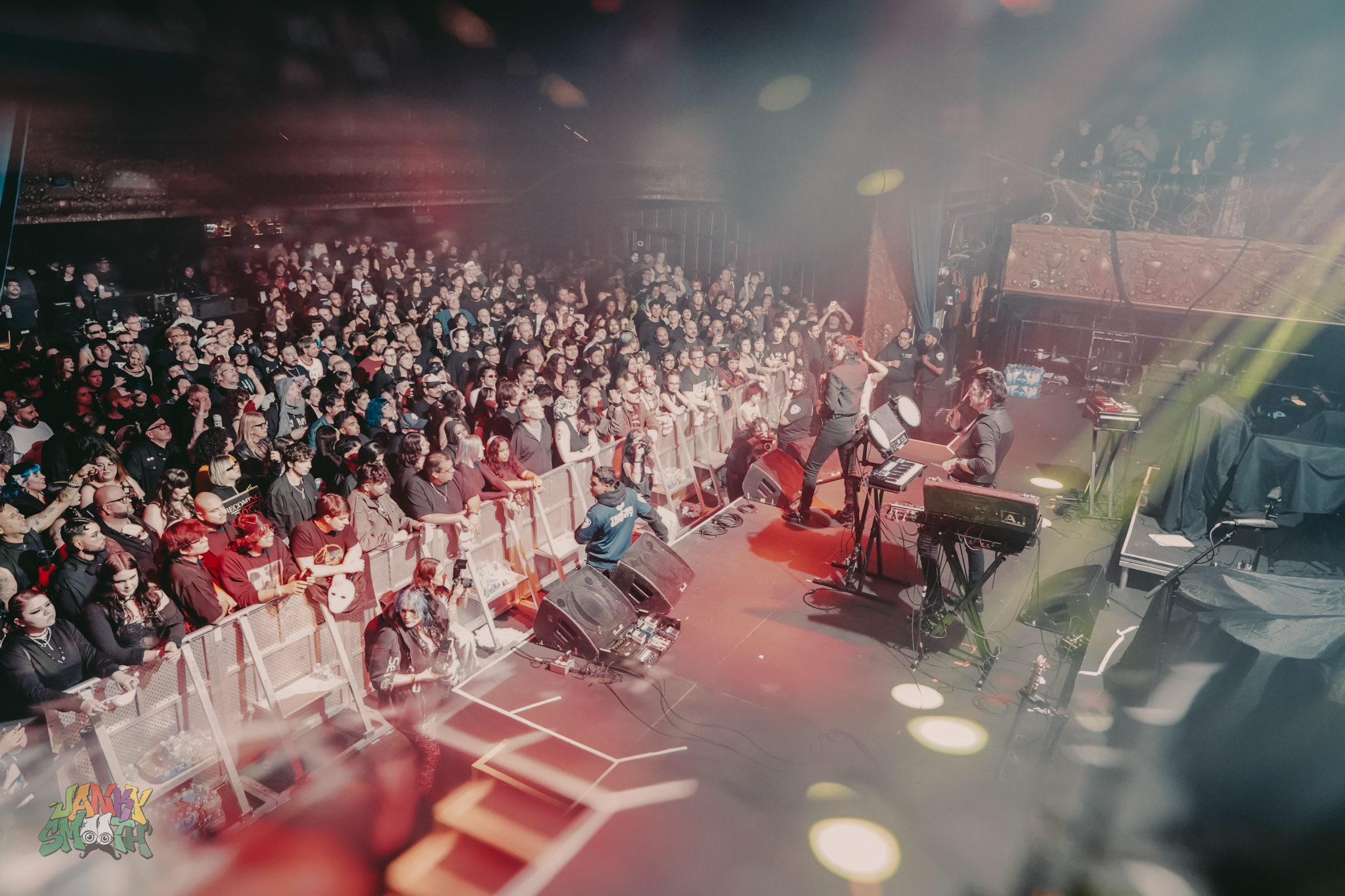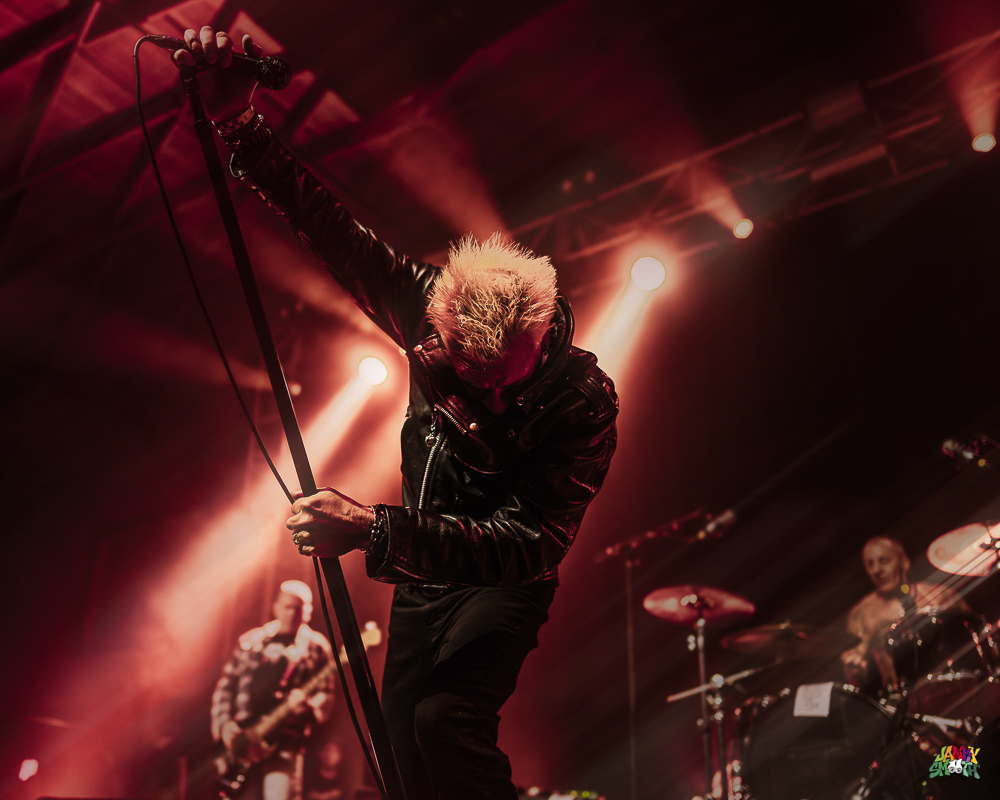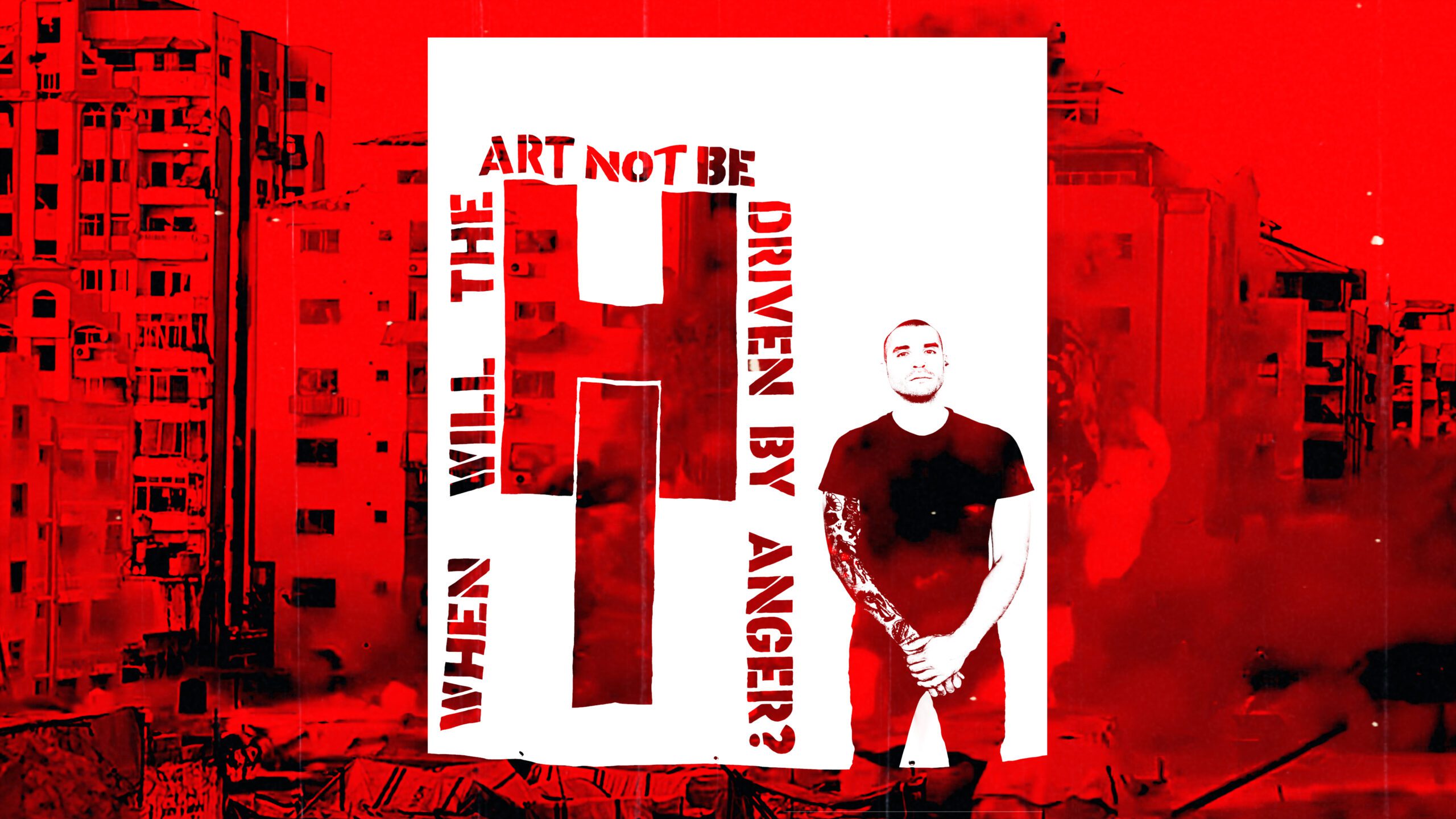Oneohtrix Point Never at the Wiltern wasn’t an ordinary concert — it was a creative breakthrough into a new form we were all indulged in. I remember being in a film class about postmodernism and asking my professor what movement was supposed to come after. The professor’s answer was “hyperreality”, which — if you’re familiar with it from painting — is a style that almost perfectly maps onto the real world… almost. Although it’s a bit difficult to imagine what hyperreality looks like in music or performance, Oneohtrix Point Never’s show at The Wiltern was an experimental leap ahead of postmodernism, and either a sidestep from hyperreality or a pastiche of it. During the show, a live puppeteer mimicked Oneohtrix Point Never’s performance, with the puppet’s antics projected live on a screen behind OPN. Seeing the duality between man and puppet provided layers of meaning to OPN’s performance, making it an autobiography in the form of a concert. For those not in the know, Oneohtrix Point Never is the pen name of electronic musician, producer, and film composer Daniel Lopatin. His rise to acclaim came in increments before his signature sound became undeniable — notably when featured in Safdie Brothers movies like Good Time and Uncut Gems. The scores to these films took on a life of their own, providing listeners with some of the most evocative soundscapes in all of electronic and ambient music. The first time this show was announced — before it had to be rescheduled twice — I knew it was a must-attend affair. Not only because of the rarity of seeing OPN in Los Angeles (he’s an East Coast creative through and through), but because his sound is so uniquely his own, that witnessing it gives you a greater scope of music in general. There is no other artist on his level producing experimental music of such high quality and resonance.
related content: A Sacred Sound Bath With William Basinski at Ambient Church
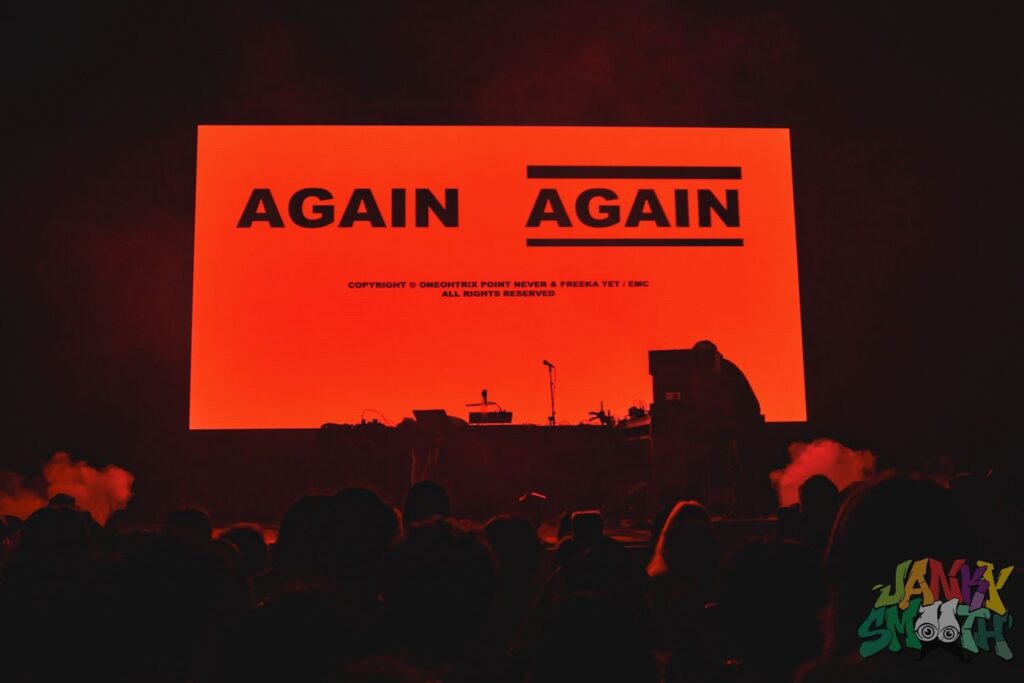
At first, this show was going to take place at the Palladium, which might have given it more of a rave atmosphere. Within the hallowed and ornate walls of the Wiltern, though, it took on a much more dramatic and cinematic feel.
Purely based on visuals and soundscapes, audiences were able to piece together a story with one or two narrative beats within every song. Storytelling devices—such as sad music accompanying a video of a drowning cartoon in a turbulent night sea, being rescued by a cartoon hand—were representative of overcoming some kind of personal hurdle, a suffocating experience, the dark night of the soul.
Another interesting moment was when the visuals took on the display of a film composer’s editing screen, with the timecode running across the scene alongside shooting script notes writing out everything the viewer was seeing. It made me imagine a deconstruction of this playing out in everyone’s ordinary life—putting a visual spin on the silent music following each of us through life.
related content: Summon and Purge: Swans at the Lodge Room
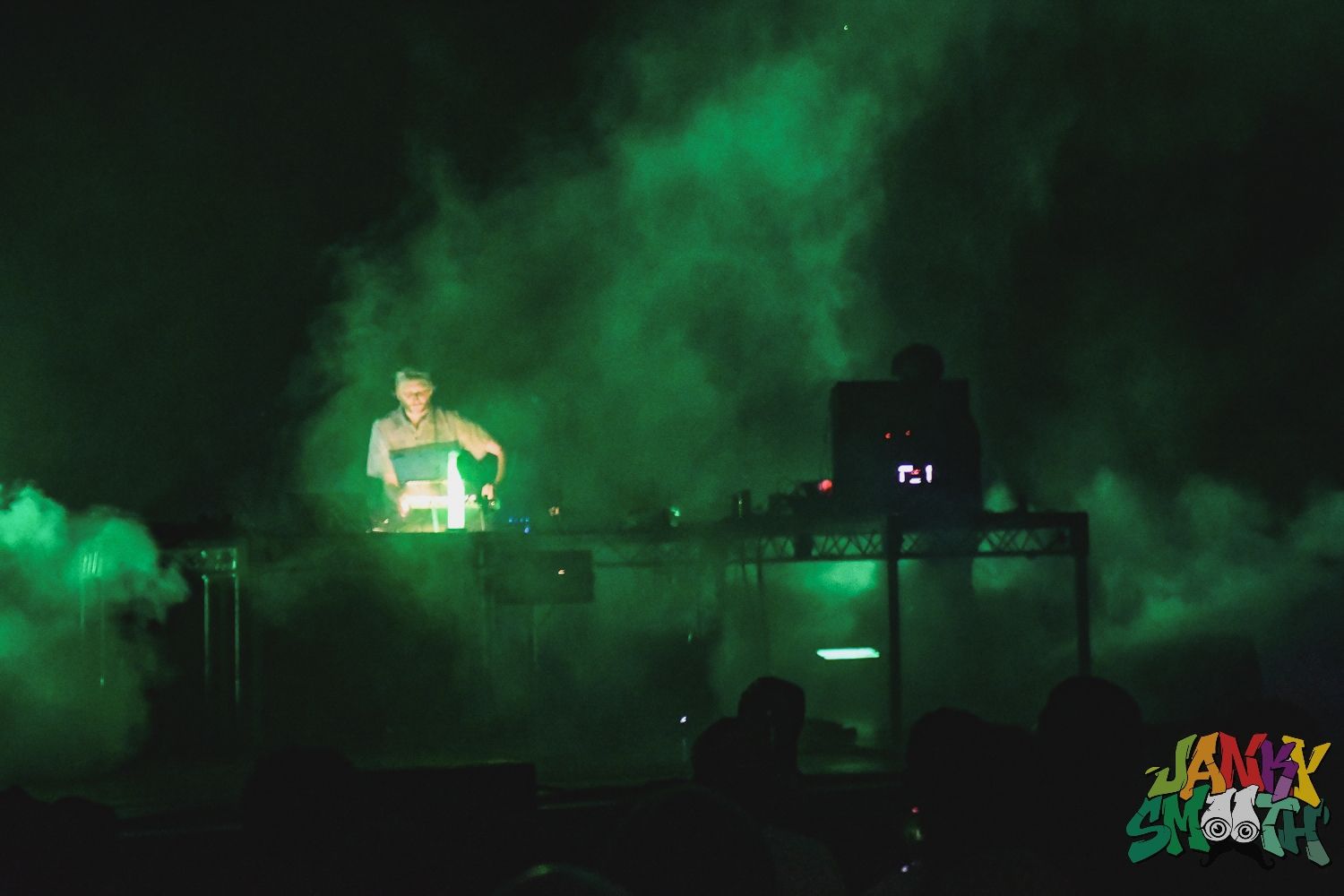
Another memorable moment occurred when the puppeteer used the puppet’s hands to strum a puppet guitar in collaboration with one of OPN’s acoustic-guitar-driven ambient songs. This moment, and others like it, wove a cerebral, psychological element through the performance that I liken to the films of Charlie Kaufman. In fact, the performance itself felt like it could’ve been directed by Kaufman—or at least written by him to be directed by Spike Jonze.
Capturing both the tone and themes of Being John Malkovich and Adaptation, I felt like I knew OPN on a deeper, more personal level after seeing this show. I was introduced to his anxieties and his tranquilities, all by hearing the music going on in his head and heart.
I always try to catch a good ambient show whenever I can, and OPN’s represents the largest scale these concerts typically appear in. Artists like William Basinski, The Caretaker, and Aphex Twin—or more recently, Grouper and Katerina Barbieri—would all feel the vibes and be inspired by this show without having to speak a word.
All the feels and emotional feedback came in the form of sound and image, and once the concert was finished, you didn’t just feel like you’d watched a movie—you felt like you’d read the book of OPN. Daniel Lopatin, a true creative, is now anointed by Los Angeles into the greats of an entire genre.
Words by: Rob Shepyer
Photos by: Abraham Preciado
